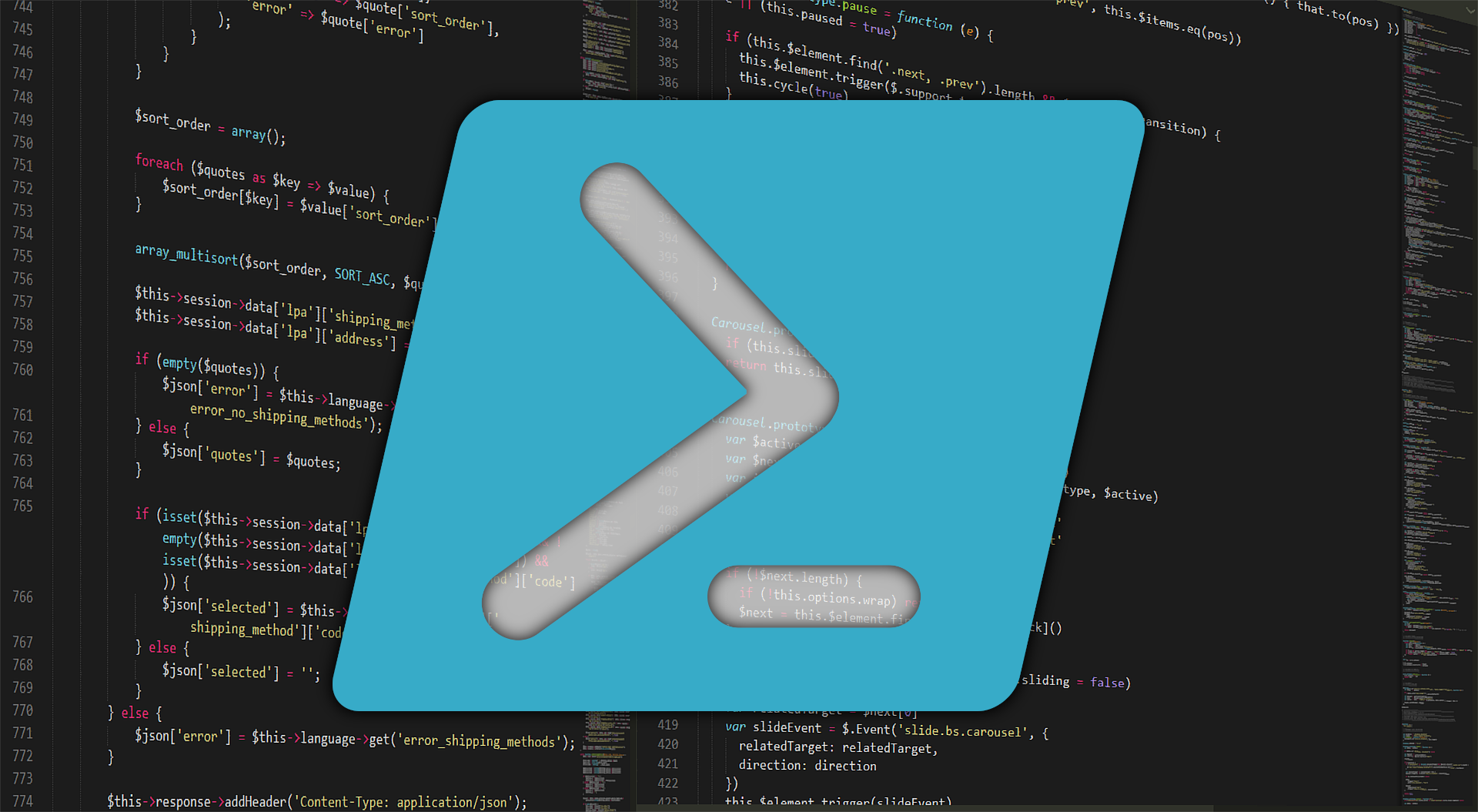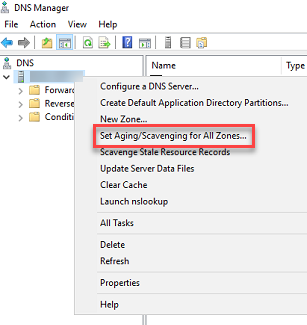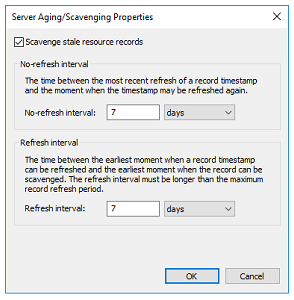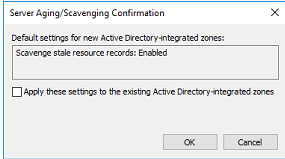
by David | Nov 17, 2021 | Information Technology
Reading Time: 2 minutes
A previous job of mine had a unique issue. Unstandardized google chromes and self-generated icons. Both of these issues caused a lot of heartaches. Today I will show you how I solved the issue of unstandardized google chromes with batch. At the time the company’s default browser was IE. The site that needed chrome was an in-house product. I was pushing towards standardization of Google chrome 64-bit enterprise. However, management did fully agree with my thinking. So a compromise was created. I created a shortcut link on the desktop that pointed to a batch file. This batch file determined which version of Chrome was installed and loaded that chrome to the special internal page. Here is the script for this icon:
The Script
if exist "C:\Program Files\Google\Chrome\Application\chrome.exe" (
start "CMD" /D "C:\Windows\System32\" /max "C:\Program Files\Google\Chrome\Application\chrome.exe" "https://www.bolding.us"
) else (
if exist "C:\Program Files (x86)\Google\Chrome\Application\chrome.exe" (
start "CMD" /D "C:\Windows\System32\" /max "C:\Program Files (x86)\Google\Chrome\Application\chrome.exe" "https://www.bolding.us"
) else (
msg "%username%" Chrome Not Installed
)
)
It’s a simple batch script. We first ask if the 64-bit path exists. If it does, then we open chrome to a hyperlink. If it doesn’t, we ask if the x86 version exists. If it does, we open chrome to the hyperlink. If it doesn’t, we tell the user it doesn’t exist. Pretty simple? Yeah, it’s very simple. So, the desktop shortcut would point to the batch file. The batch file would execute and load up the chrome page.
Taking it another step
This process helped a lot when it came to the next issue. The next issue was each location had a custom-hosted site on that location’s Server. There were tablets that had to float between each location. This means, that the icon on the tablet must open the custom website link at center 1 and at center 101. Thankfully each center had it’s own subnet. Each server that hosted this site hosted it at 10.x.x.5. This means all I had to do is find out the Subnet and make a .5 address in the link. Believe it or not, that’s not as hard as you would think. We are taking the script from above and pretty much piping the new URL into it.
The Script
@echo off
rem All i need to do now is grab only the IP address with batch.
rem ipconfig | find "IPv4"
for /f "usebackq tokens=2 delims=:" %%f in (`ipconfig ^| findstr /c:"IPv4 Address"`) do set "ip=%%f"
for /f "tokens=1-4 delims=. " %%a in ("%ip%") do (
set octetA=%%a
set octetB=%%b
set octetC=%%c
set octetD=%%d
)
if exist "C:\Program Files\Google\Chrome\Application\chrome.exe" (
start "CMD" /D "C:\Windows\System32\" /max "C:\Program Files\Google\Chrome\Application\chrome.exe" "http://%octetA%.%octetB%.%octetC%.5/Login.aspx"
) else (
if exist "C:\Program Files (x86)\Google\Chrome\Application\chrome.exe" (
start "CMD" /D "C:\Windows\System32\" /max "C:\Program Files (x86)\Google\Chrome\Application\chrome.exe" "http://%octetA%.%octetB%.%octetC%.5/Login.aspx"
) else (
msg "%username%" Chrome Not Installed
)
)
exit
Inside the script you see that we are breaking down the IPv4 address. So, if you are running IPv6, this isn’t going to work. We place each Octect into it’s on veraible. Then we build the site at the link level. Bamn, done with the script.
The next part is to create the icon. Which i’ll leave that to you. I hope this little brain twister is helpful for what it is worth.

by David | Nov 12, 2021 | Group Policy, Information Technology
Reading Time: 2 minutes
Whenever we get a new client, one of the first things we do is create a new folder on the root of C called temp. If that client has a group policy we create a policy just for that. This guide is a simple one, it’s how to create a folder with group policy. This post will build on other posts. Let’s get started.
Creating the Policy
- Start Group Policy.
- Expand to your Group Policy Objects
- Right Click and Select new Policy.
- Name the Policy. I suggest, “Folder – Temp”
- Right Click the “Folder – Temp” Policy and click edit
- Naviage to Computer Configuration > Preferences > Windows Settings > Folders.
- Right Click in the right plane
- Click New > Folder
- In the Path location, enter the path you want. In this case it will be c:\temp.
- Click OK.
Now we have the policy made, we need to decide who is getting the policy. We want every computer to get this policy. Closeout the edit group policy and click on the policy. Then click on the delegation tab. Here we see our delegations. Right now every user and computer will execute this policy. We want to change that.
Delegating the Policy
- Click on the policy in question “Folder – Temp”
- Click the delegation tab.
- Click Authenticated users
- Click advanced
- Click autenticated users in this window.
- Uncheck apply group policy.
- Click the add button
- Search for Domain Computers
- Give Domain computers Read and Apply by checking the check box on read and apply group policy.
- Click Apply
- Click Ok.
Linking the policy
Now the policy will only apply to Domain Computers inside whatever OU you link it to. Now we need to link it to an OU. Since we are doing this to all computers on the domain, we can link it at the top level. We do this by right-clicking the domain and clicking the Link existing gpo object. We search for the GPO in question and click it. Then we click ok. Within the next few days, the c:\temp folder will be created.
That is how you create a folder on all computers in your domain. If you have any questions, feel free to reach out.

by David | Nov 10, 2021 | Information Technology, PowerShell, Resources
Reading Time: 7 minutes
From time to time, you will be asked to create a web report with data that can only be easily obtained by PowerShell. There are hundreds of modules out there that can do this, which is very nice. This blog isn’t about those modules, but instead some tricks I have learned over the years. When it comes to custom HTML reports, these are very customized from data sources like Azure, Active Directory, even SLQlite services. If all possible I like to use the Universal dashboard. But the UD doesn’t translate to emails or IIS pages very well. Let’s get started with the here string.
Here-String
$HereString =@"
Information
"@
A here-string is used to create a block of text. In the example above you see the variable HereString is equal to @””@. This is very important. The @ symbol indicates the start and stops of a here-string. You can place variables inside the here-string as well. This means you can build variables outside of the here-string and plump them into the string. Here is an example of our base for the website.
$HTML = @"
<html>
<head>
<title>Employee List</title>
<style>
</style>
</head>
<body>
</body>
</html>
"@
From this template, we can add CSS coding, powershell tables, lists and much more. The next important item we need to talk about is the convertto-html commandlet.
Convertto-html
This command is the heart of creating tables out of PowerShell information. For example, you want to pull all enabled users from the employees OU and display their displaynames, samaccountnames, department, and title in order. That’s a simple get-aduser command.
$users = Get-ADUser -Filter {enabled -eq $true} `
-SearchBase "OU=hospice Users,DC=Hospice,DC=Local" `
-Properties displayname,samaccountname,title,department `
| Select-Object Displayname,Samaccountname,Title,Department `
| sort-object Displayname
Now we need to convert this array of data into a useable table. This is where convertto-html comes into place. We can tell the command to create a full website just for the tabled information or we can tell it to produce a single table using the as flag and the fragment flag.
$UsersToHTML = $users | ConvertTo-Html -as Table -Fragment
Now we have a user table that we can drop into our Here-string from above. The Here-string is the last thing you will create during this custom process.
$HTML = @"
<html>
<head>
<title>Employee List</title>
<style>
</style>
</head>
<body>
$UsersToHTML
</body>
</html>
"@
This is pretty much the basics of how you would create a site of all users and their user names. You export that site using the >> command. So it would look like this:
$HTML >> <Pathtohtml>.html
Going Deeper – Employee Directory With Images
Let’s go a little deeper by making an employee Directory with pictures. In this scenario, we will assume that the active directory has thumbnail photos inside of it. This Scenario is going to be based on an IIS server and everything is set up for a basic HTML page. I will as
Requirements:
- If a property is not present in the AD account, null or blank, do not display that property.
- All users must have a photo or a placeholder.
- The table must be in alphbetical order by the displayname.
- Required Properities:
- Photo
- Display Name
- Username
- Job Title
- Department
- Mobile Phone
- Office Phone
- Fax
- Manager
The first thing we need to do is grab the data that we need from the active directory. We do that with the get-aduser command.
$users = Get-ADUser -filter {enabled -eq $true} `
-Properties thumbnailPhoto,Displayname,SamAccountName,Title,Department,MobilePhone,OfficePhone,Fax,Manager
There will be two tables that we will be working with. The first table will be two columns and however many rows we will need. The first column will contain the 128×128 active directory thumbnail photo. The second column will contain the Users information. The second column will contain a table with two columns and 8 rows. The first column will be the name of the value and the second column will be the value itself.
I can do this in two ways. I can start the first table inside the here-string or I can create the table before the here-string. I’m going to create the table before the here-string. This way I have a clear image in my head of the table that I am inputting into the here-string. Notice the UserTable is a here-string as well. So we will refer to the Main HTML here-string as the HTML string from here on out.
$UserTable = @"
<table id="myTable">
<tr class="header">
<th style="width:20%;visibility: hidden;"></th>
<th style="width:30%;visibility: hidden;"></th>
</tr>
"@
Now we have a basic HTML table built. From here on out, we will be creating the rows for this table. Inside each row will be the two columns. The photo column and the data column. The data column will contain the table with the employee data on it. It’s time to start looping through that user’s object we created a while ago. We start off with a simple foreach loop. Inside the loop the logic will go as follows:
- Grab the photo from the thumbnail property and save it to the image repo using the username.
- Start the new row. Inside the first column of the new row, we check to see if that photo exists. If it does, then we we create an img tag of the file, if it doesn’t then we target the general image file.
- The second column we blank out the values for each item.
- Then we create the table.
- Then we create if statements that creates each row in table 2. if the users object has the property in question for that user, we set the value and create the <tr> accordingly.
- Finally we close off the second table and the row.
- Then after all of the rows on table 1 is created, we close off the table.
Phew. This is going to be crazy.
The first part is to download the photo in question. If the user’s profile has a thumbnail photo we will download it from AD using the set-content command. (PS5)
foreach ($User in $Users) {
$PhotoPath = "<path>/images/$($user.samaccountname).jpg"
if ($Null -ne $user.thumbnailPhoto) {
$user.thumbnailPhoto | Set-Content $PhotoPath -Encoding byte
}
}
The next step is to determine if the file exists. If it does, we want to create the Image URL towards the new user’s image. If not, we want it to go to the placeholder image. All of this is still within the Loop in question.
if (Test-Path $PhotoPath) {
$ImageURL = "Images/$($user.UserPrincipalName).jpg"
} else {
$ImageURL = "Images/Placeholder.png"
}
Now we need to make a placeholder for each property that we will be using. We do this so the next time the loop processes, we have fresh variables.
$DisplayName = ""
$Username = ""
$JobTitle = ""
$Department = ""
$MobilePhone = ""
$OfficePhone = ""
$Fax = ""
$Manager = ""
Now we need to test these variables and fill them up with HTML code. Each one of these will be a row on the table2. The code below is the same for each of these. All you need to do is replace the <value> with the value in question. The one on the left is what you will replace. The one on the right is an example.
if ($Null -ne $User.<Value>) {
$<value>= @"
<tr>
<td style='font-size:16px; text-align:justify; width:100px;'>
<strong><value>:</strong>
</td>
<td style='vertical-align: top; text-align:left;'>
$($User.<value>)
</td>
</tr>
"@
}
if ($Null -ne $User.OfficePhone) {
$OfficePhone= @"
<tr>
<td style='font-size:16px; text-align:justify; width:100px;'>
<strong>Office Phone:</strong>
</td>
<td style='vertical-align: top; text-align:left;'>
$($User.OfficePhone)
</td>
</tr>
"@
}
Once you create a value for each of these items, it’s time to put it together into the User’s table. AKA table2. We start off by using the $usertable from above combined with a here-string. Remember we are now entering the first table again and creating each row. Here is what the code will look like.
$UserTable = $UserTable + @"
<tr>
<td> <center><a href="$ImageURL" target="_blank"><img src='$ImageURL' style='width:125px; height:125px; border-radius:100px;'></a></center></td>
<td>
<table>
$DisplayName
$UserName
$JobTitle
$Department
$MobilePhone
$OfficePhone
$Fax
$Manager
</table>
</td>
</tr>
"@
We are building this string. This is what you see the $usertable = $usertable + Here-String. All of this is the single row for the table in question. We loop through all of the users using this method and close out the Loop. Once the loop is closed out what we need to do next is close out the table. We do this by adding a final </table> to the end of the table in question.
$UserTable = $UserTable + "</table>"
The final part is placing this table inside an HTML website. It’s as simple as slipping $UserTable between the two bodies.
$HTML = @"
<html>
<head>
<title>Employee List</title>
<style>
</style>
</head>
<body>
$UserTable
</body>
</html>
"@
Now we have an HTML site. We can further edit this and create a nice CSS code with some java-scripts, but I’m not going to get fancy here. The final thing we have to do is export this html page.
$HTML > <pathtosite>\index.html
This process is basically building inside out. We started by the image and then the data. We built accordingly. Now the script itself.
The Script
param (
$Filepath = (Read-Host "File Path for "),
$ImagePath = (Read-Host "Image Folder")
)
$users = Get-ADUser -filter {enabled -eq $true} `
-Properties thumbnailPhoto,Displayname,SamAccountName,Title,Department,MobilePhone,OfficePhone,Fax,Manager
$UserTable = @"
<table id="myTable">
<tr class="header">
<th style="width:20%;visibility: hidden;"></th>
<th style="width:30%;visibility: hidden;"></th>
</tr>
"@
foreach ($User in $Users) {
$PhotoPath = "$ImagePath/$($user.samaccountname).jpg"
if ($Null -ne $user.thumbnailPhoto) {
$user.thumbnailPhoto | Set-Content $PhotoPath -Encoding byte
}
if (Test-Path $PhotoPath) {
$ImageURL = "Images/$($user.UserPrincipalName).jpg"
} else {
$ImageURL = "Images/Placeholder.png"
}
$DisplayName = ""
$Username = ""
$JobTitle = ""
$Department = ""
$MobilePhone = ""
$OfficePhone = ""
$Fax = ""
$Manager = ""
if ($Null -ne $User.displayname) {
$DisplayName= @"
<tr>
<td style='font-size:16px; text-align:justify; width:100px;'>
<strong>Display Name:</strong>
</td>
<td style='vertical-align: top; text-align:left;'>
$($User.displayname)
</td>
</tr>
"@
}
if ($Null -ne $User.samaccountname) {
$Username= @"
<tr>
<td style='font-size:16px; text-align:justify; width:100px;'>
<strong>Username:</strong>
</td>
<td style='vertical-align: top; text-align:left;'>
$($User.samaccountname)
</td>
</tr>
"@
}
if ($Null -ne $User.title) {
$JobTitle = @"
<tr>
<td style='font-size:16px; text-align:justify; width:100px;'>
<strong>Job Title:</strong>
</td>
<td style='vertical-align: top; text-align:left;'>
$($User.title)
</td>
</tr>
"@
}
if ($Null -ne $User.Department) {
$Department= @"
<tr>
<td style='font-size:16px; text-align:justify; width:100px;'>
<strong>Department:</strong>
</td>
<td style='vertical-align: top; text-align:left;'>
$($User.Department)
</td>
</tr>
"@
}
if ($Null -ne $User.MobilePhone) {
$MobilePhone = @"
<tr>
<td style='font-size:16px; text-align:justify; width:100px;'>
<strong>Mobile Phone:</strong>
</td>
<td style='vertical-align: top; text-align:left;'>
$($User.MobilePhone)
</td>
</tr>
"@
}
if ($Null -ne $User.OfficePhone) {
$OfficePhone= @"
<tr>
<td style='font-size:16px; text-align:justify; width:100px;'>
<strong>Office Phone:</strong>
</td>
<td style='vertical-align: top; text-align:left;'>
$($User.OfficePhone)
</td>
</tr>
"@
}
if ($Null -ne $User.Fax) {
$Fax = @"
<tr>
<td style='font-size:16px; text-align:justify; width:100px;'>
<strong>Fax:</strong>
</td>
<td style='vertical-align: top; text-align:left;'>
$($User.Fax)
</td>
</tr>
"@
}
if ($Null -ne $User.Manager) {
$ManagerInfo = $User.Manager.split(',')[0] -replace "CN=",''
$Manager = @"
<tr>
<td style='font-size:16px; text-align:justify; width:100px;'>
<strong>Manager:</strong>
</td>
<td style='vertical-align: top; text-align:left;'>
$($ManagerInfo)
</td>
</tr>
"@
}
$UserTable = $UserTable + @"
<tr>
<td> <center><a href="$ImageURL" target="_blank"><img src='$ImageURL' style='width:125px; height:125px; border-radius:100px;'></a></center></td>
<td>
<table>
$DisplayName
$UserName
$JobTitle
$Department
$MobilePhone
$OfficePhone
$Fax
$Manager
</table>
</td>
</tr>
"@
}
$UserTable = $UserTable + "</table>"
$HTML = @"
<html>
<head>
<title>Employee List</title>
<style>
</style>
</head>
<body>
$UserTable
</body>
</html>
"@
$Html > $Filepath
That’s all folk, yall have a great week!

by David | Nov 5, 2021 | Group Policy, Information Technology
Reading Time: 3 minutes
This one was a fun one that really threw me for a loop. DNS is an issue no matter where you go. Recently facebook showed the world how DNS can take everything down. DNS in your domain is very important to keep alive and healthy. Having items sit in your DNS is deadly to your org. That is why something called DNS Scavenging exists. This story is a story about DNS and how it directly affected group policy.
Scenario – Wrong Server!
A client called and stated that group policy wasn’t applied to a single machine. He said he couldn’t even log into the machine with new accounts, just accounts that were on there from the day before. He went as far as to say that a user that just changed his password had to use his old password. Very interesting combo of items.
Who, What, Where, When, How
- Who: Anyone using this computer. Users who never signed into the machine, and users who has signed in but changed their passwords recently.
- What: Login with thier current passwords, Login, Group Policy not applying.
- Where: This single machine, later on discovered another.
- When: One week before the issue started. (After DHCP was edited)
- How: When they log in.
When I first came in, I looked at the machine in question. I ran an IPconfig /all on the machine to get basic information. I marked down the IP, subnet, mac address, DNS servers, and the DHCP server. I then ran the gpresult /r and the command errored out saying the group policy server did not respond. Hum… I pinged the DNS I noted and the ping came back. I ran NSLookup on the dns server’s IP address to get a hostname. The hostname came back as “xxx-bobsmacbook”. Well now, that’s not the DNS server. I asked the client for the DNS server information. He gladly gave it to me. I RDPed into the DNS server. The DNS server was also the DHCP server and the AD server. All the fsmo roles were on this machine. Sigh… Ok, other than that, I deep-dived into DNS because the NSLookup came back as someone’s mac book. Sure enough, there was an entry into DNS from about 2 years before for bobsmacbook at the IP address the machine believed was the DNS server. Infact, every IP address in the subnet was inside there. Most of them were years old.
I looked at the client and asked why their DNS was so full of old records. He replied with, that’s our archive. It took everything in me not to facepalm. I mean, my hand moved instinctively to my face. After explaining the importance of DNS to the client, the client agreed to enable DNS Scavenging. Wouldn’t you know it, after the first rotation, the entire company started to move much quicker. Requests to the IIS server took only seconds instead of minutes. Copying files across the network just generally did better. NSlookup worked. The computer in question group policy was updated correctly. When DNS breaks, everything suffers. In this case, DNS was a young man covered in trash bags.
How to enable DNS Scavenging
DNS Scavenging is an windows feature that finds old stale records and removes them. This ensures environments with DHCP do not detect multiple devices based on bad/multiple DNS entries for the same device. Here are the steps to enable it.
- Start > Programs > Administrative tools > DNS > DNS Manager.
- Right click the DNS Server

- Click set Aging/Scavenging for all zones.
- Check box the “Scavenge Stale Resources Records
- Select the No-refresh and Refresh intervals totals combined equals to or is less than the DHCP lease. If the lease is 8 days, set the rates at 4 each.

- Click Ok.
- On the Server Aging/Scavenging Confirmation screen, check box the “Apply these settings to existing active directory intergrated zones.”

- Click ok
- (Optional) Right click the DNS server and click the “Scavenage State Resource Records” to start the process.
There you have it. The DNS records will be purged when the time comes. This allows DHCP to issue IP addresses with no problems and DNS stays clean.
As always, if you have any questions, feel free to ask.

by David | Nov 3, 2021 | Help Desk, Information Technology, PowerShell
Reading Time: < 1 minute
How does one enable, disable, and reset a user’s MFA in Office 365? I was surprised by how much is required for enabling MFA.
Enable MFA
The first thing we do is Get the User from the Get-MsolUser.
$user = Get-MsolUser -UserPrincipalName $UPN
Next, we create a Strong Authentication object using the New-Object.
$SAR = New-Object -TypeName Microsoft.Online.Administration.StrongAuthenticationRequirement
Now the object is created, you can review the object by using the Get-Member command. This object has 4 properties and 4 methods. We can now edit the properties. We will edit the RelyingParty and state.
$sar.RelyingParty = "*"
$sar.State = "Enabled"
Now we place the edited items into the user’s account.
$sarobject = @($sa)
Set-MsolUser -UserPrincipalName $user.Userprincipalname -StrongAuthenticationRequirements $sarobject
The Script
$user = Get-MsolUser -UserPrincipalName $UPN
$SAR = New-Object -TypeName Microsoft.Online.Administration.StrongAuthenticationRequiremen $sar.RelyingParty = "*"
$sar.State = "Enabled"
$sarobject = @($sa)
Set-MsolUser -UserPrincipalName $user.Userprincipalname -StrongAuthenticationRequirements $sarobjec
Disable MFA
Disabling MFA is extremely easy compared to enabling it. It’s as simple as putting a blank object inside the strong authentication requirements flag.
Set-MsolUser -UserPrincipalName $user.Userprincipalname -StrongAuthenticationRequirements @()
Reset MFA
The last one is to reset the MFA. Microsoft created a commandlet just for this case. The command is Reset-MsolStrongAuthenticationMethodByUpn.
Reset-MsolStrongAuthenticationMethodByUpn -UserPrincipalName $user.Userprincipalname
I hope this helps out.









